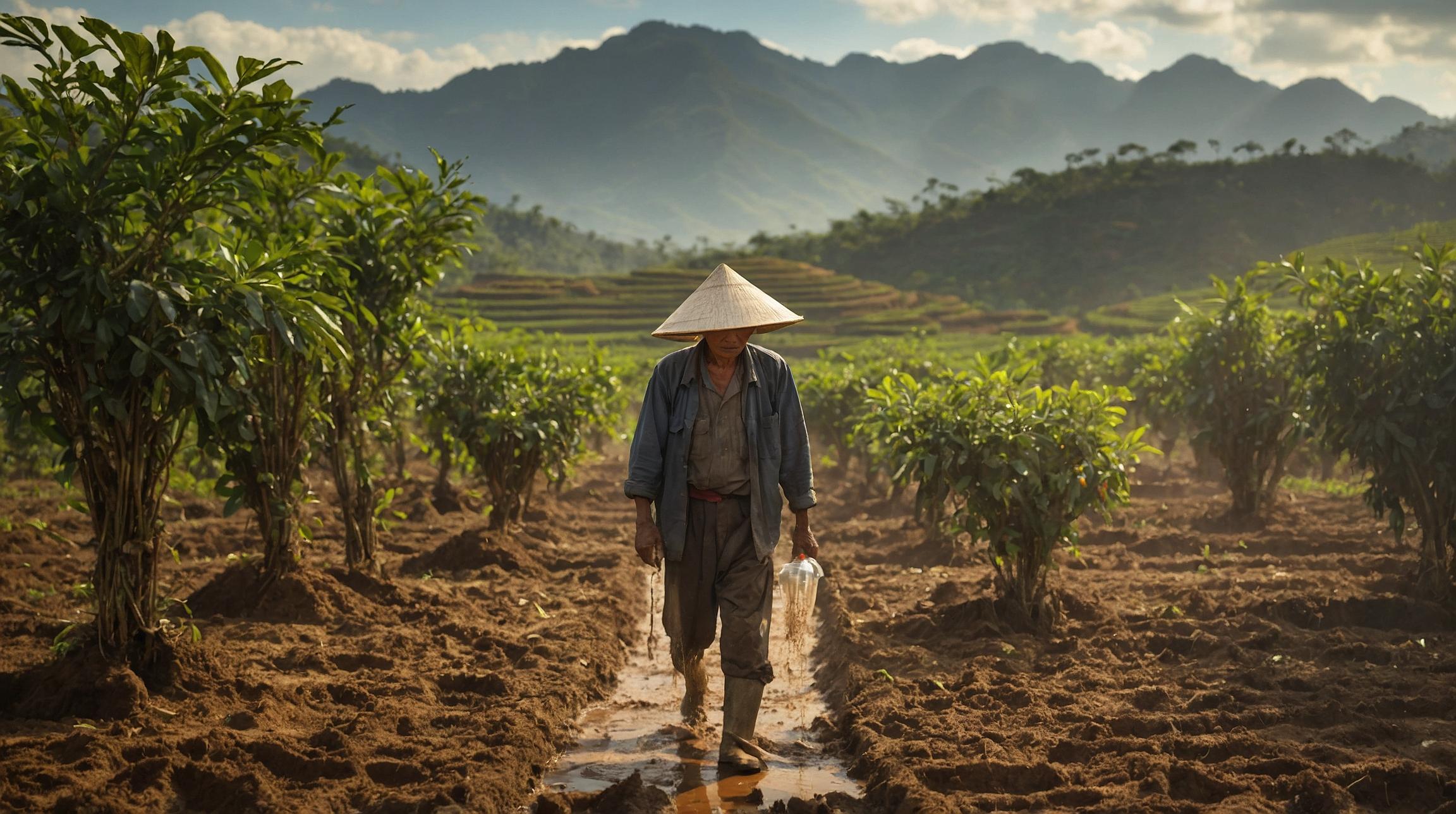Vietnam Coffee Farms Battle Drought but Espresso Prices May Still Rise
Vietnam, the world's second-largest coffee producer, is currently facing a challenging situation. This year's worst drought in nearly a decade has hit Vietnamese coffee growers hard, and predictions for next season's harvest are not looking good. As a result, espresso prices around the world might go up, even though some farmers have found ways to keep their crops healthy.
Worrying Forecasts Ahead
Domestic predictions for Vietnam's next coffee crop remain bleak. The Mercantile Exchange of Vietnam (MVX) expects a 10-16% drop in coffee output due to extreme heat in the Central Highlands region. This heatwave struck between March and early May, according to Nguyen Ngoc Quynh, a deputy head of the MVX.
However, recent rains have improved the situation slightly, giving farmers and officials some hope. But it’s still uncertain whether this will significantly boost the production of robusta beans. Robusta beans are important because they are used in espressos and instant coffees, and Vietnam is the world's top producer of this variety.
Some Farmers Find Success
Not all farmers are struggling. Nguyen Huu Long, who grows coffee on a 50-hectare plantation in Gia Lai, one of Vietnam's top coffee-producing provinces, expects his farm's output to actually increase.
Nguyen Huu Long explained his strategy:
- He keeps the soil around his coffee trees moist by covering it with leaves.
- Unlike other farmers who cut trees down after a few years to improve soil quality, he keeps his trees growing for decades. This allows the plants to develop deeper roots, making them better at finding water underground.
Another farmer, Doan Van Thang, shared that they soften the soil around the plants to help them absorb rainwater and fertilizers better.
Resilience in the Fields
Tran Thi Huong, a tenant farmer in Gia Lai, used more water than usual during the heatwave. Thanks to canals built by local authorities, she had enough water to keep her plants healthy. Although the coffee cherries are smaller this year, she expects her overall harvest to be unaffected. She also used biopesticides to combat bugs that became more numerous due to the drought.
In line with Tran Thi Huong's experience, the United States Department of Agriculture (USDA) is more optimistic about Vietnam's next harvest, predicting it will be about the same as this year's.
The Cost of Drought
Even with some farmers managing well, coffee prices are likely to rise. Wholesale prices in Vietnam and London-traded robusta futures hit record highs earlier this year. This surge is due to Vietnam’s poor harvest and worries about the upcoming crop, according to traders and analysts.
So far, these record wholesale prices have only slightly affected consumer prices. In April, coffee inflation was up by 1.6% in the European Union and 2.5% in Italy. While these increases are lower than last year's, they still indicate that roasters might start passing higher costs on to consumers.
Future Uncertainties
Worries about Vietnam’s coffee output aren’t over yet. If there’s not enough rain after the drought or too much rain before the October harvest, production could drop even more, warned a Vietnam-based trader.
High wholesale prices might continue as global demand for robusta coffee grows. According to Le Thanh Son of Simexco, one of Vietnam's biggest coffee exporters, many farmers are now financially stable and can choose to hoard their coffee instead of selling it quickly. Additionally, some have switched to growing durian, a fruit in high demand in China, which further affects coffee supply.
Key Takeaways:
- Vietnam coffee farmers are facing a severe drought, leading to concerns of lower yields and higher coffee prices worldwide.
- Some farmers are using innovative methods to protect their crops and maintain production.
- Global coffee prices, especially for espressos, might increase due to these challenges.
Understanding these dynamics helps when you notice prices changing in your local cafe or grocery store since many factors, including international agricultural issues, play a role in what you pay for your cup of coffee.













